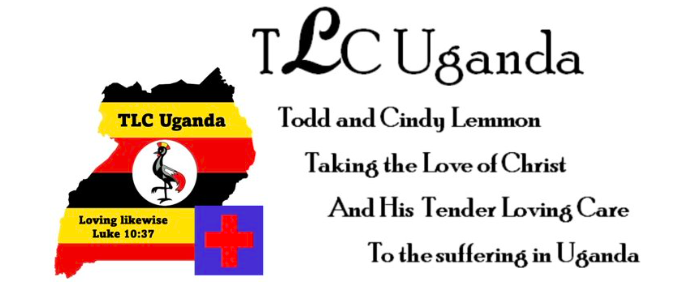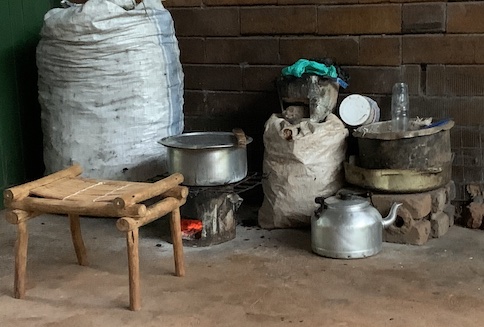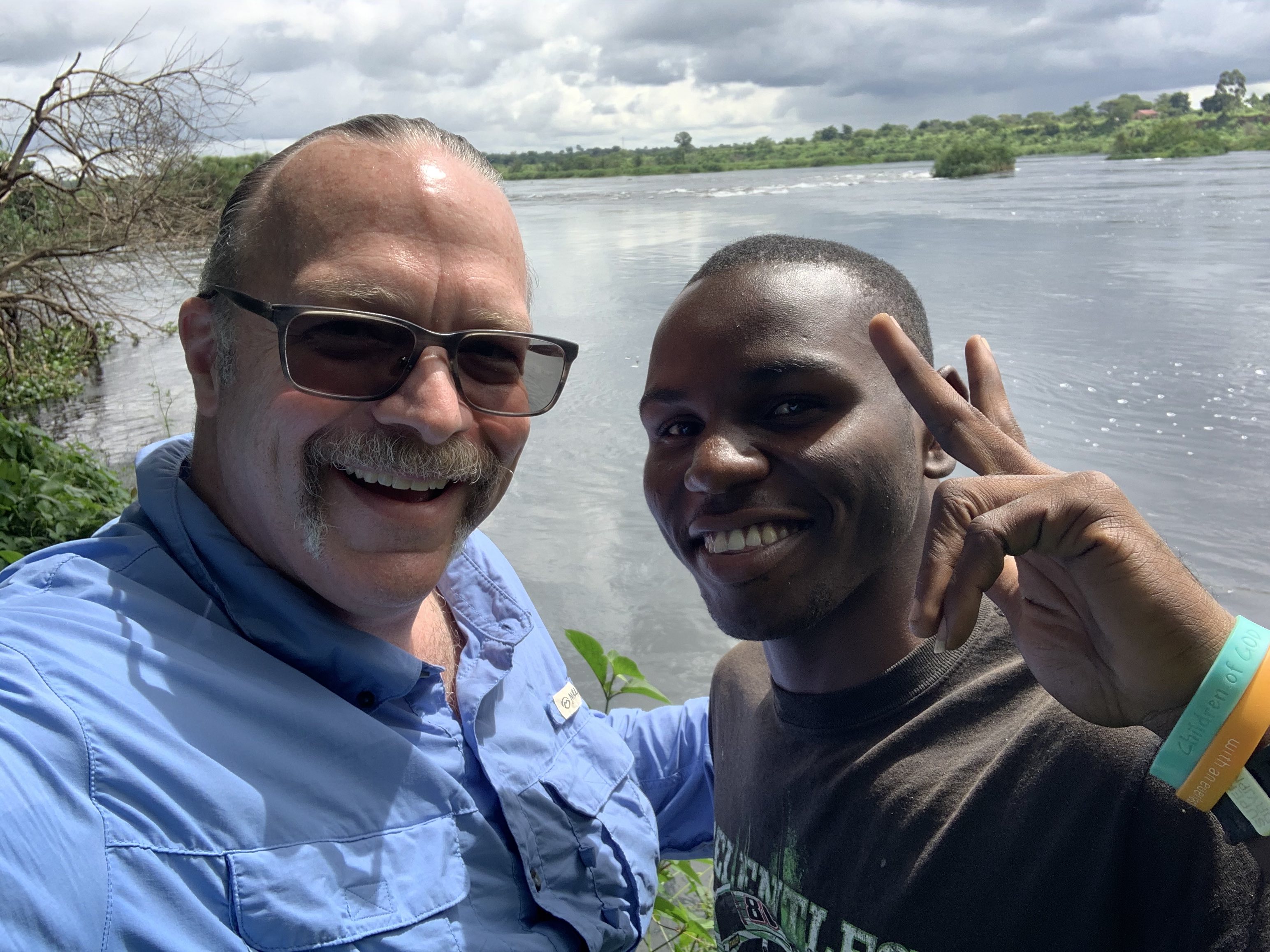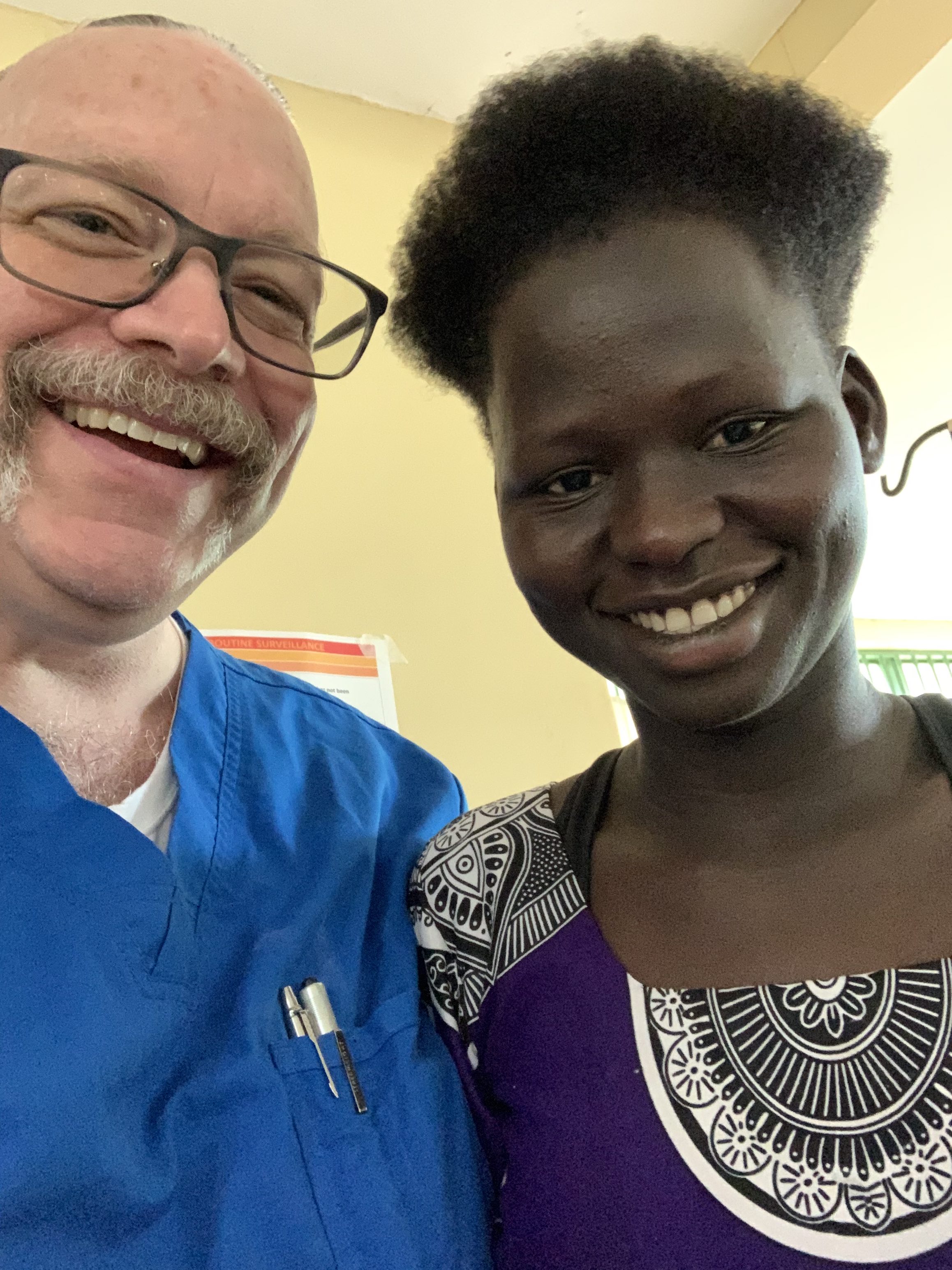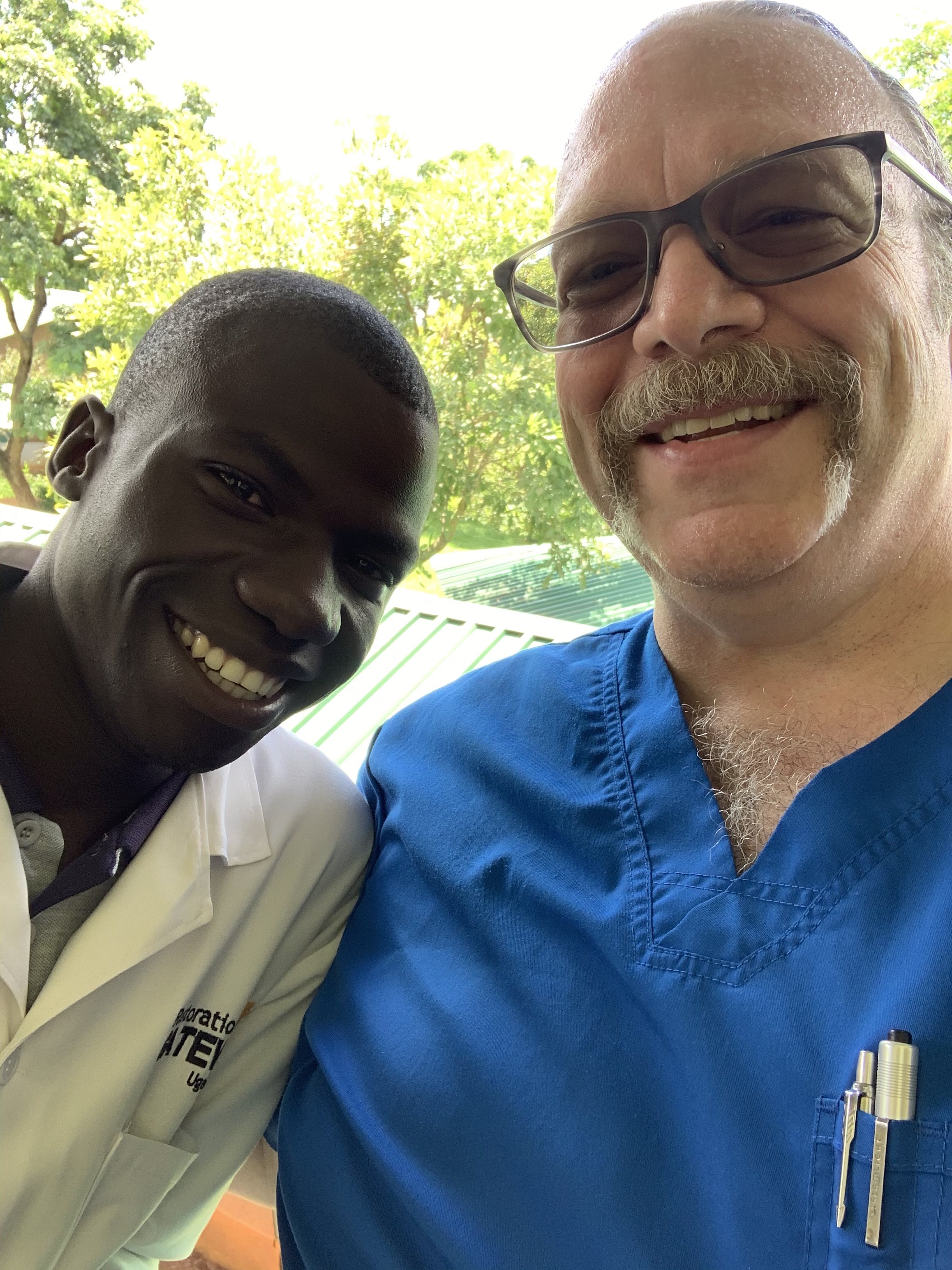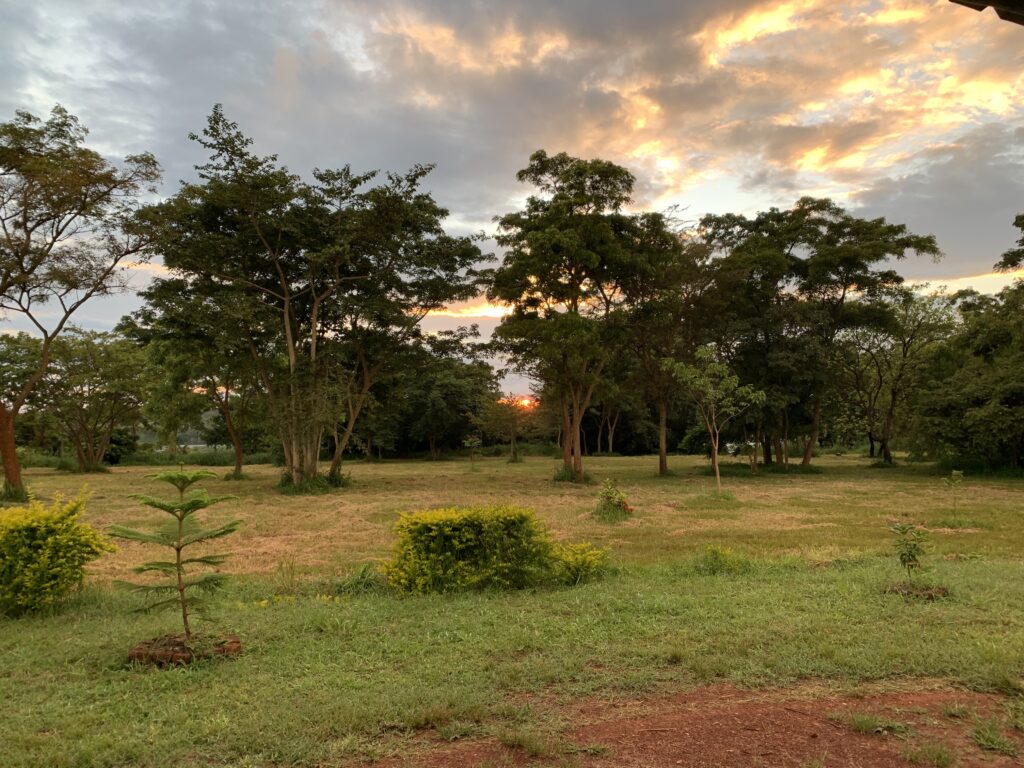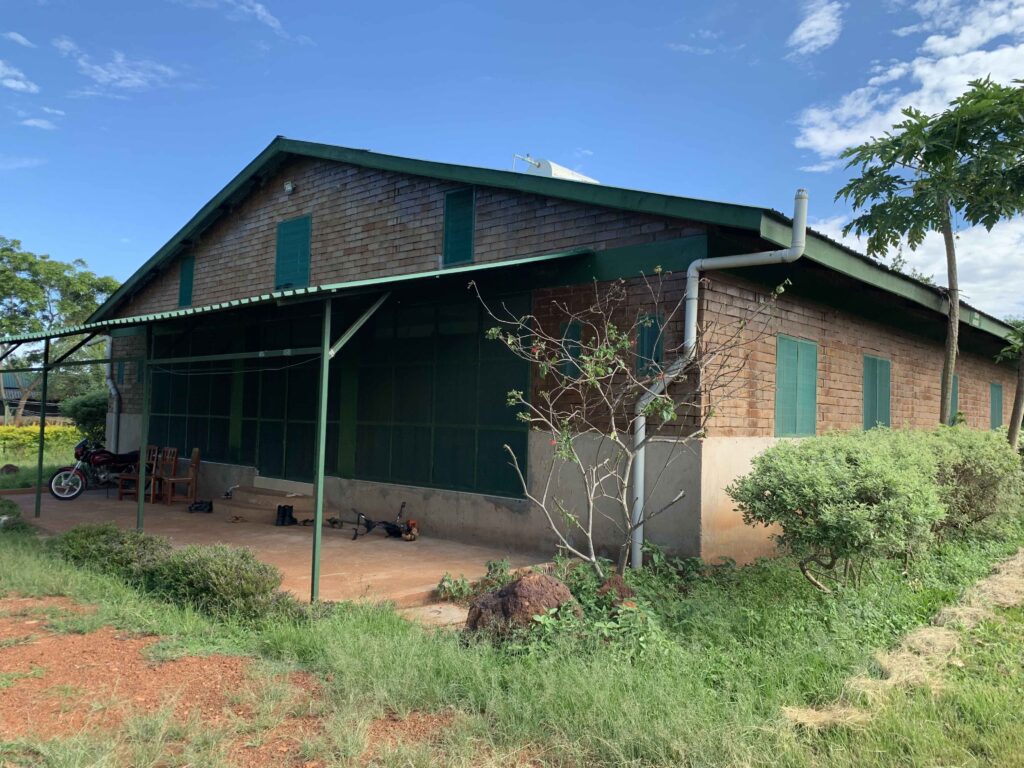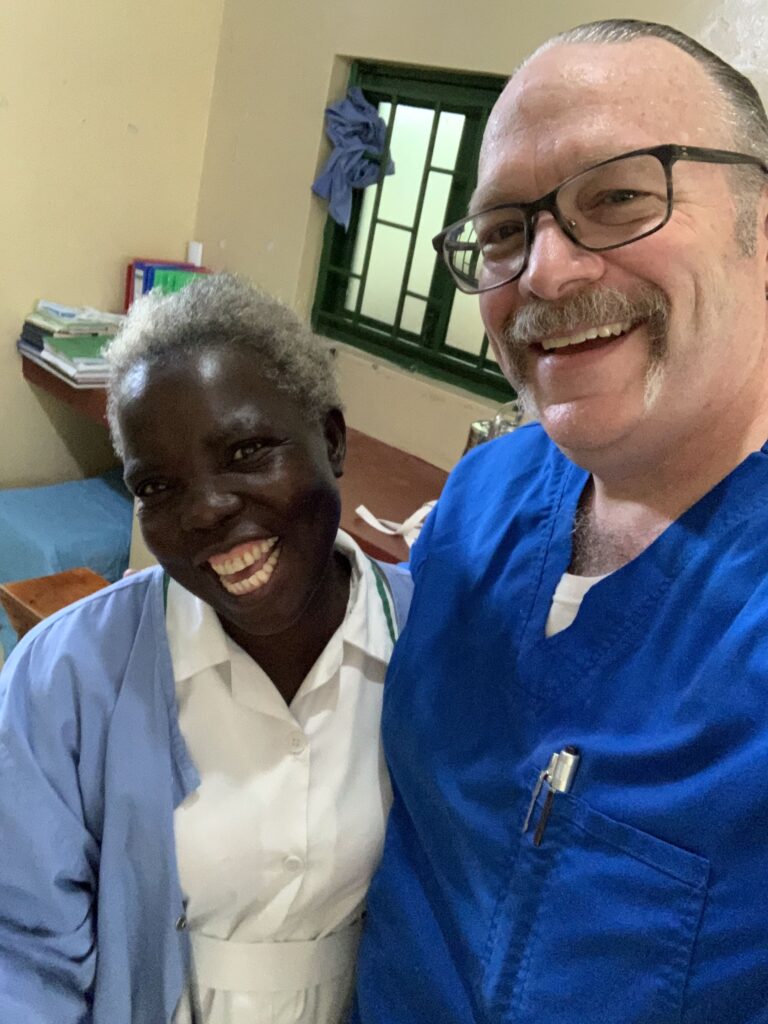It is hard to believe I have already been here in Uganda two weeks. The mission at which I am staying has a new place in my heart and I am learning to love so many people here and make my way among them.
Saturday, I spent the whole day indoors, sleeping late, lounging, writing, and watching a movie provided by my friend, Jessica. It rained all day, so most people stayed in. It was a welcome Sabbath of rest. I did manage to post last week’s update on this day, but to do so, I had to visit the WiFi hotspot at a neighboring house, and braved the rain to get there.
Sunday, church services were indoors due to the rain, and the sound of worshipping voices echoing in the concrete gymnasium was deafening. God is good, and the people here generally like to celebrate it.
After church, I went to the boys’ dorm for lunch. K-Morris and Hosman hung out with me and made me very welcome, while we ate beans and posho (moistened white corn flour). Then, Hosman escorted me down the steep, muddy ravine to visit the bank of the Nile River. There is about a 30-foot drop separating the main part of the mission's property from the Nile and the monsters that live beneath its surface. It is that slippery surface I climbed and slid down just to visit the river’s edge. I am told that, at night, one can hear hippos grunting from Team House, where I am staying but, so far, I have not heard them. As recently as a year ago, a boater taking a woman back across the river from the hospital inadvertently came between a hippo cow and her calf and was attacked and killed. This steep climb back was difficult but, since it serves as a barrier between trouble and the residents of the mission, it is welcome. Still, this old guy wore himself out climbing up the slippery slope.
I found a bunch of little kids playing around the Library, and I joined them in a round-about dancing game. They squealed with laughter when “Uncle” shook his booty when his turn came around. After that, they had me play “Hippo,” a game where everyone runs downfield on the football (soccer) pitch to get away from the charging hippo (me, or three other older kids who didn’t give out so quickly).
Janet and K-Morris visited late into the night. Janet told the story of how she came to be at this mission. She said she was only two, but old enough to remember when the LRA came and killed her parents. As she hid in the bush with her Aunt, she remembers talking too much and having to be muffled for the lives of everyone with her. She is an amazing young woman but, like so many here, is starving for genuine love.
Monday, Janet floated in the hospital, but stayed with me most of the time while I worked mostly on the General Ward (GW). We got a new patient, a teen boy critically ill with malaria. The ward is filling back up, but there were no new babies on the Maternity Ward. The one in the NICU on the warmer needed a new IV cannula, and the girls asked me to try, so I did, but without success. I was partially vindicated, though, because no one else could do it either. Still, it was the first time anybody ever trusted me to poke a hole in a baby. It was a momentous occasion for a guy who spends all night sticking only grown-ups at home.
Walking the property, I met up with Pastor Gitta, our very energetic preacher. While we were chatting, we were approached by my friend, Jessica, who invited us into the residence she shares with the children’s spiritual director, Eunice. We were offered sliced bread, a real treat around here. (Not fresh from the oven bread, but recently from the store bread.)
Tuesday was the day of the week I would skip if I could go back over it. Had it not been for the way it concluded, it would have been a terrible, horrible, no good, very bad day. First, the teen boy with malaria was diagnosed with meningitis, which means the inflammation has effected the tissues surrounding his brain and/or spinal cord.
While that was going on, I watched another teen boy die of the same thing in a bed near that one. As his breaths slowed from 30 per minute to 4, I tried to make him as comfortable and dignified as I could. There are very few things I can do to minister grace to a people who do not speak my language, but one of them is to show that I care. Every time I visited this young man, I put my hand on his shoulder or chest and called him “little brother.” He may not have heard me, but his family did, and they at least know those words of English. One thing more they know — that I cared enough to attend him at his death and prepare him for removal with dignity and respect for him and his whole family. I made that clear with as many non-verbal gestures and what little Acholi I know.
A few new patients arrived, and it was busy day. As I finally got to take my lunch with Nurses Mirriam and Patrishia well after the 2 o’clock shift change, Evening Nurse Patrick informed us that the malnourished baby admitted on the 4th had also succumbed to his advanced condition. I stayed and performed “last office” (preparing the body for transportation) with Patrick. In Uganda, before you can leave the hospital, you have to pay your bill. With a deceased patient it is no different. Before the body can be claimed, the family must pay the bill. This family had no money to feed their baby, but their community came together and helped them pay their final hospital bill so he could be buried with the family. On one hand, I am moved at the unity of neighbors, but on the other, I wonder where those neighbors were when there was no posho for the child when he first went hungry.
I skipped prayer meeting and, instead, prayed and quietly sang “The Lord’s Prayer,” walking home with my friend, Janet, as we both were emotionally beaten by the events of the day. I invited Janet to dinner, and she offered to share her favorite movie with Jess and me.
We watched Overcomer. It’s about a fatherless black girl who dreams of a loving relationship with a father. Imagine watching this movie with a 20-year-old African girl who, at age two, watched her parents being brutally killed. She told me this is her favorite movie, and that she has seen it six times. Is your heart broken yet? Because mine has been ever since. If I spent all the time, money, and trouble to come here for nothing else but Janet, it would be worth it! The reality is that there are 220 kids here at the mission, each with an equally touching back-story. I only have permission to share this one.
At 8:00 PM, we stopped the movie and prayed for Cindy, who would be starting her job interview in Jacksonville (at 1:00 PM EDT). Shortly after the movie ended, Cindy reported that she got the job and will start in late June.
Wednesday, though I am not staff, I was invited to audit the hospital department-head staff meeting. The struggle to do what must be done with the limited resources at hand must be universal, because it sounded just like the troubles we have back home, only amplified exponentially due to the poverty that effects all Uganda.
On the General Ward, we discharged an elderly male stroke survivor for palliation at home. It was sad, but he represents another family I can trust felt my respect and love. One family member actually bowed to me before he left. At rounds first thing this morning, the man was propped up by his son, who had sat behind him on the hospital bed, his legs around his father, as if he was holding him in his lap. It was a beautiful picture of role reversal, as the son cared for the father.
I was horrified to recognize that today is the 12th, and that I had missed the birthday of one of the children Cindy and I sponsor, so I went to the canteen as I left work, and delivered some treats that are favored around here as a late concession. She was gracious and quickly forgave me, then accompanied me to prayer meeting, where we worshipped together.
When I got back to Team House, I found my quarters spotless, my laundry washed, and my shoes gleaming. Michael and Robina, the Hospitality Team, had swooped in while I was at the hospital and made everything fresh and nice.
Thursday, I discovered there must be some kind of cobbler elf around here, because when I leave dishes in the strainer overnight, they magically put themselves away by the time the sun comes up. The cobbler elf’s name is Judith and, in between managing the restaurant at the hospital, she makes my dinner each night and always takes great care of me.
Just about the time I was ready to go home early because of boredom at the hospital, up came an elective Cesarean section! Dr. Robert invited me to watch, so I did. What an amazing procedure, and what a privilege to be present for the delivery of a baby not my own family! Two firsts in one for me. It was a big day. After the delivery, Dr. Robert said that, if I stay long enough, he will have me assisting him in surgery. What a treat that would be!
Janet arrived after her real job to shadow in the hospital at 2:00 PM. Things were so slow, we folded gauze sponges. Yes, fellow nurses, we folded our own gauze sponges! This is how you do things in a country not so rich that sterile sponges come pre-packaged. We folded hundreds of them to be sterilized in an autoclave later.
I worshipped at the prayer meeting with my sponsored child, Vivian, again. Pastor Gitta made an interesting analogy of Elisha’s axe head to our sin. When the man told Elisha he had lost the borrowed axe head, Elisha asked where it was dropped in the water before making it float to the surface. Similarly, we should be specific about our confessions of sin. When we get off track in our righteousness, it is helpful to point back to exactly where we got off track, where we dropped our axe heads, so to speak. He taught that repentance should come with some amends to it. It does no good to ask God to forgive you for moving your neighbor’s boundary stone if you don’t go back and replace it. That spoke to me.
The kids are trying to teach me about football (soccer) and are hounding me to pick a Premier League team to support. Winning records apparently do not matter as much as location, colors, and league affiliation, so I’m open for suggestions.
I was met on the road by one of the adult girls, Shalom, who asked me to accompany her on a walk to the basketball court (a popular meeting place). Jess joined us and several of us went to Team House. I made lemonade for my visitors. (Note to self: Crystal Light lemonade is extremely popular here.) When our dinner arrived, we tried to share it with all those present. As the girls left, K-Morris paid me a visit. He would be leaving the next day for a visit to his home village before school starts.
Everyone is abuzz about Jess’ birthday party Saturday night. The kids all call her “Cool Mom,” and she likes to live up to the nickname. She has ordered chicken and chips (fries), cake, and soda for her special circle of friends. I am invited, so I feel special too.
Friday, was so slow at the hospital, Janet and I spent much of the time folding more gauze sponges for placement in the autoclave this afternoon. During a break, she walked me to the place overlooking the Nile behind the hospital. We stood and watched the river roar by, the monkeys swinging in the trees, and some very musical and colorful birds dancing in the sky. It was a beautiful day. While I did not feel like I was engaged in ministry in a very articulable way today, I spent a lot of time building relationships with the other hospital staff. I am learning more Acholi words, and I use them whenever I can. The girls tease me and threaten to stop speaking English since I don’t need it anymore. The clinical officer and doctors giggle when they hear me speak Acholi. When I inquire whether my pronunciation is bad, they say, “No, we just like that you are learning so fast.” Apparently most visitors to the mission do not learn the language, eat the local food, or spend time getting to know the people on a personal level.
I heard nurses talk about how underpaid, understaffed, under-resourced, and under appreciated they are, just like in the United States. The difference is that American nurses can still feed their families on the 16th of the month and Ugandan nurses often cannot because the resources of their pay are depleted by halfway through the month. These nurses never quit serving though, and I am impressed at all they can do with the little they have.
Even after hearing how impoverished Ugandans are, and how strapped for funds nurses are, I was astonished and honored that one of my favorites told me the nurses are planning a party for me before I return home. Only two weeks into my trip, I have made myself an accepted part of the crew. I asked around, and found that they do not do this for every visitor, and that I should certainly be honored. I’m humbled that those with so little would choose to share what they have to celebrate me being among them.
I visited Judith in the Hospital Restaurant, and she treated me with samples of “crunchy daddies” which are miniature snack versions of mendazi, a favorite breakfast pastry around here. She asked me several questions about what I do and do not like. I informed her that g-nut paste and bananas is my favorite Ugandan treat. She has a fun way of making my wishes for Ugandan dishes come true when I mention them. Outside, I learned how to make posho, an African staple. It’s about as difficult as making grits except the corn is ground more finely.
After work, Nurse Patrick honored me by showing me his garden, with which he feeds his family. He drove me on a motorcycle he had borrowed to what was really a small farm, on which he had planted maize (corn), g-nuts (slightly similar to peanuts), beans, okra, and eggplant, with a few experimental plants thrown in. It was amazing to see all that was growing because he had worked hard, and this in between his hospital shifts and caring for his two small boys.
I walked with Jess in the hour before dinner, and we discussed our view of missions in general and how to be more relevant to the kids. We both struggle with finding God’s role for us in ministry and carrying it out.
When I returned to Team House, there on the table were sweet bananas (the kind you are used to, not the green cooking ones) and g-nut paste. That sweet Judith must love me!
But maber! (Good night)
